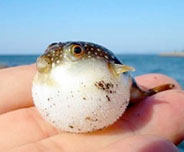Your Base Vocabulary: The first ~400 words
[Author's note: Behold, the new, improved list:]
[Available until Jan 2 via Kickstarter. We now return you to your regular programming:]
I’ve culled this list from the General Service List - a frequency list for English. These are words that are frequent in English and are relatively easy to picture. Most of them will show up in the top 2000 words of your target language, and so you can save a bit of time by adding these words to your Anki deck right at the beginning.
How to use this list:
- Learn your pronunciation rules; you should know what pronunciation to expect based upon the spelling of a word. Seriously. You’ll need it in step 2. You can find pronunciation resources for a bunch of languages in the Languages section
- Get a decent online/software bilingual dictionary (I’ve listed online sources for quite a few languages in the Languages section) with pronunciation listed. You should be able to compare your expectations from step #1 to the pronunciation listed for each word, so you know whether this word is an exception or not (and whether to include that data with any given word)
- Look up translations for each of the 400 words in this list. I’m a huge fan of Lonely Planet phrasebooks for this purpose; they’re cheap, short, and easy to look through, and you’ll find good translations for most of these words in there. Now go to Google images and look up the word you found in the target language. You’re looking to see whether speakers of your target language associate the word you found with the sort of images you’d expect. If not, you should either try a different translation of the word you’re using, or you should skip the word for now. This will happen for several words in this list; it’s just a time-saving measure stolen from an English frequency list, and it won’t work all the time. Many languages don’t use the same Breakfast/Dinner/Lunch concept as English speakers. Russian has separate words for light blue and dark blue. So if the images you get don’t make sense, skip them! You’ll get the right words later, from your own language’s frequency list. In the event that you’re using a language with an almost nonexistent internet presence (Cherokee, or something), then you’re going to need to be extremely careful here, and ideally run your pictures in front of a native speaker and make sure that each word means what you think it means. Intensively learning the wrong words for things is something you should try to avoid at all costs.
- Add the words to Anki. Add gender information, any exceptional pronunciation information, and maybe an example sentence from Google images.
That’s it! Here’s the list:
Your First ~400 Words:
Animals: dog, cat, fish, bird, ‘animal’ (dog/cat/fish/bird = animal), snake, cow, pig, mouse, horse, elephant, tail, wing
Transport: train, plane, car, bicycle, bus, boat, tire, gasoline, (train) ticket
City/Countryside: city, house, street, airport, train station, bridge, hotel, farm, a crowd, court
Clothes: hat, dress, skirt, shirt, T-shirt, pants, shoes, pocket
Colors: red, green, blue (light/dark), yellow, green, brown, pink, orange, black, white, gray
People-related: son, daughter, mother, father, man, woman, brother, sister, family, grandfather, grandmother, husband, wife, king, queen, neighbor, boy, girl, religion, death, money
Beverages: coffee, tea, wine, beer, juice, water, milk
Food/Food Related: eggs, cheese, bread, soup, cake, chicken, pork, beef, apple, banana, orange, lemon, corn, rice, oil, seed, knife, spoon, fork, plate, cup, breakfast, lunch, dinner, sugar
Home: table, chair, clock, bed, lamp, window, door, bedroom, kitchen, bathroom, pencil, pen, photograph, soap, cell phone, computer, laptop, camera, television, book, key, paint
Body: head, face, hair, eye, mouth, nose, ear, tongue, back, finger, toe, leg, foot, heart, blood, brain, tooth, knee, sweat, disease, bone, beard, tear (drop)
Nature: sea, river, mountain, rain, snow, tree, sun, moon, forest, plant, wind, soil/earth, flower, valley, root, lake, star, grass, leaf, air, sand, beach, ocean, wave, morning, evening, night
Jobs: Teacher, doctor, waiter, secretary, priest
Materials, Measurements, Math: glass, metal, wood, stone, clay, meter, centimeter, kilogram, inch, pound, half, circle, square, silver, gold, diamond, copper
Misc: ball, game, price, gun, dream, left, right, straight, bag, box, barrel, map, a dot, poison, needle, consonant, vowel, light, yes, no
Seasons: Summer, Spring, Winter, Fall
Numbers: 1-22, 31, 32, 41, 42, 51, 52, 61, 62, 71, 72, 81, 82, 91, 92, 100, 101, 102, 110, 111, 1000, 1001, 10000, 100000, 1000000
Months: 1-12 (use a calendar and numbers)
Days of the week: 1-7 (use a calendar and numbers) (learning these leads into “Today/Yesterday/Tomorrow”)
Times: year, month, day, hour, minute, second (use a calendar and clock)
Cardinal Numbers: 1st, 2nd, 3rd, 4th, 5th
Verbs that are somewhat easy to picture: to work, to play, to go, to walk, to run, to drive (careful with verbs of motion!), to follow, to think, to speak/say, to eat, to drink, to kill, to die, to smile, to laugh, to cry, to buy, to shoot(a gun), to jump, to smell, to see, to taste, to touch, to hear, to kiss, to burn, to melt, to dig, to explode, to sit, to stand, to love, to drive, to pass, to cut, to fight, to lie down, to dance, to sleep, to wake up, to sing, to count, to marry, to pray, to win, to lose, to mix/stir, to bend, to wash, to cook, to open, to close
Adjectives/Adverbs that are somewhat easy to picture: long/short, tall/short, wide/narrow, big/small, slow/fast, hot/cold, new/old, good/bad, wet/dry, sick/healthy, loud/quiet, happy/sad, beautiful/ugly, deaf, nice/mean, rich/poor, thick/thin, expensive/cheap, flat/curved, male/female, tight/loose
Enjoy! Please make sure you follow the instructions above. This is a tool that can be misused and seriously mess up your language studies from the beginning if you badly translate words into your target language and then intensively drill them into your memory with Anki. Also if you skip the pronunciation step then you’re going to have a harder time memorizing them, recognizing them when a native speaker says them, and you’ll be intensively drilling bad habits into your brain. The steps are there to save you time; they’re worth following.


